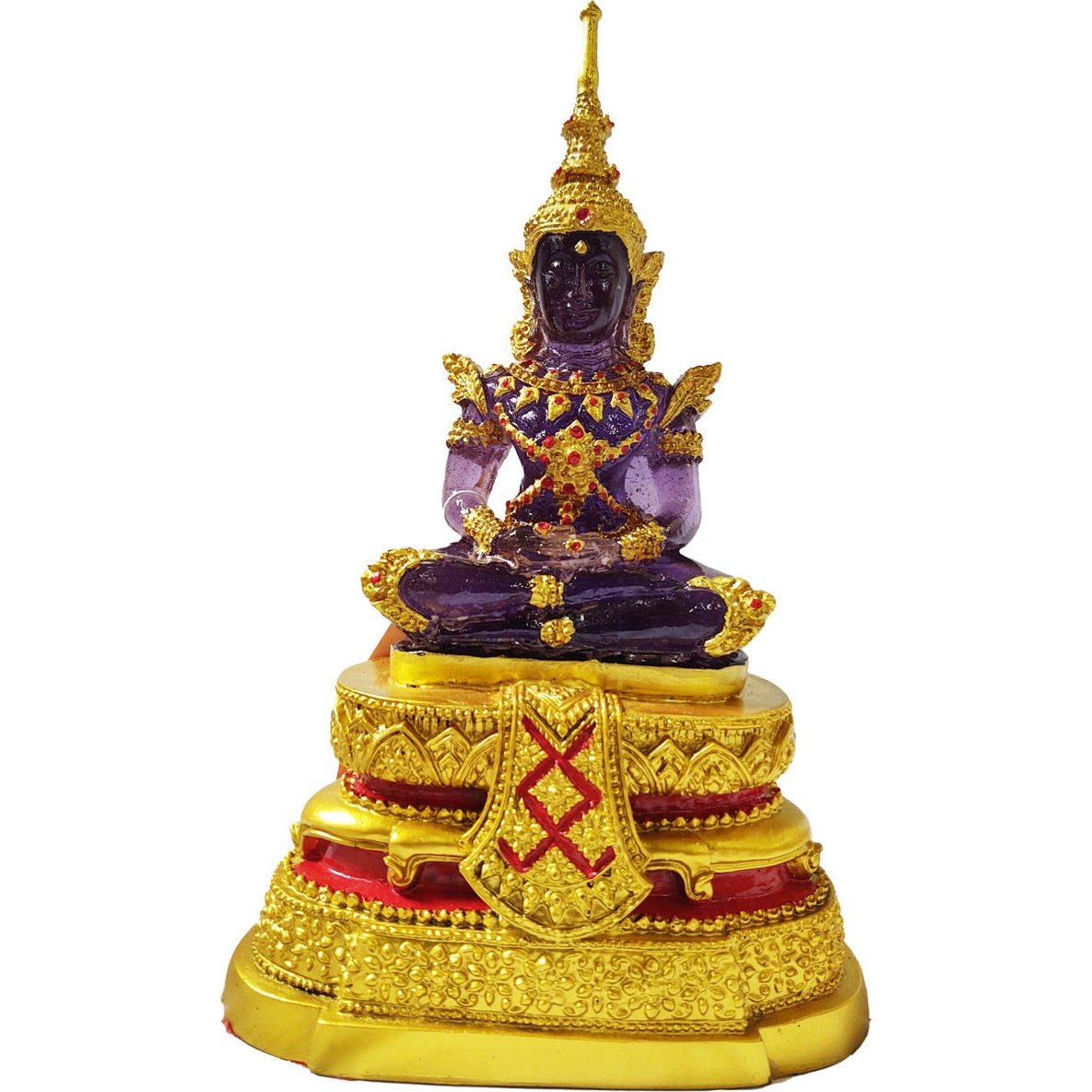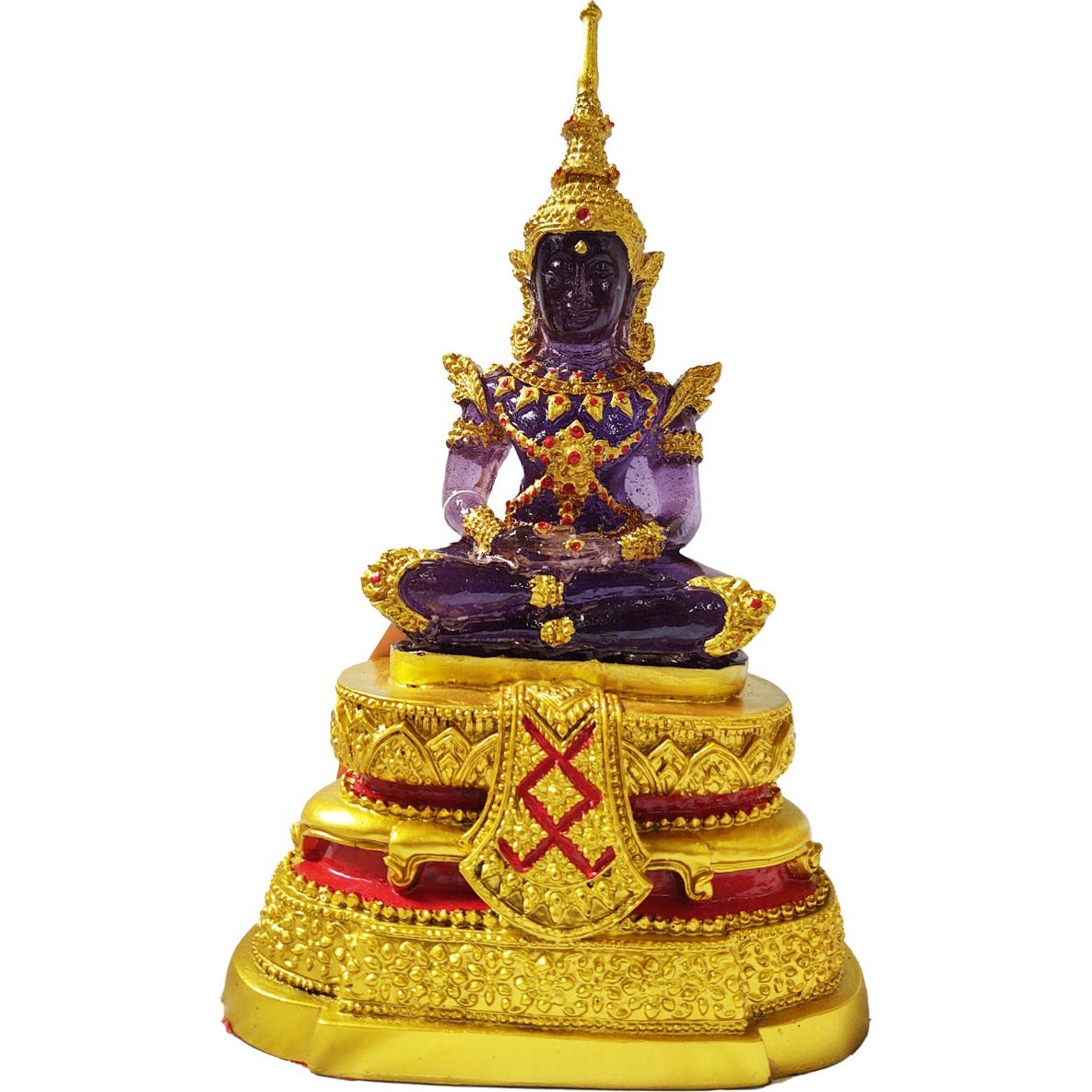Replica of Emerald Buddha in Purple Resin Summer Attire 11" Tall
Replica of Emerald Buddha in Purple Resin Summer Attire 11" Tall
SKU:A-R-99-PU-11
Couldn't load pickup availability
|
It is still being determined when the Emerald Buddha was carved; however, judging from the appearance and style, one could conclude it was cut in Northern Thailand not much earlier than the fifteenth century. On the other hand, the Emerald Buddha, in an attitude of meditation, looks much like some Buddha images of Southern India and Sri Lanka. This attitude of meditation has never been prevalent in other Thai carvings of Buddha images, so one might assign the origin to one of the countries above. According to reliable chronicles, lightning struck a Chedi in Chiangrai province of Northern Thailand in 1434 A.D.and a Buddha statue made of stucco was found inside. The abbot of the temple noticed that the stucco on the nose had flaked off, and the image inside was a green color. He then removed the stucco covering and found the Emerald Buddha, which is, in reality, made of green jade. At that time, Chiangrai was under the rule of the King of Chiangmai, King Samfangkaen, as people flocked to view and worship this beautiful Buddha image. The King then decided to move the image to Chiangmai. He sent out an elephant three times to bring the Emerald Buddha to Chiangmai, but each time, the elephant ran to the city of Lampang instead of returning to Chiangmai. The King thought the spirits guarding the Emerald Buddha wanted to stay in Lampang, so it was allowed to remain there until 1468. Then, the new King, King Tiloka, brought the Emerald Buddha to Chiangmai. According to Chronicles, the image was installed in the eastern niche of a large stupa at Wat Chedi Luang. The King of Chiangmai in the mid-16th century had no sons. His daughter was married to the King of Laos and born one son named Prince Chaichettha. After the King died in 1551, the prince, at the age of fifteen, was invited to become the King of Chiangmai. However, when his father died, the King of Laos, King Chaichettha, wanted to return to his own country. In 1552, he returned to Luang Prabang, then the capital of Laos, and took the Emerald Buddha with him. He promised the ministers he would return to Chiangmai, but he never did nor sent back the Emerald Buddha. In 1564, King Chaichettha was chased out of Luang Prabang by the Burmese army of King Bayinnaung and took the Emerald Buddha to his new capital, Vientiane. The Emerald Buddha remained there for 214 years. When King Rama I was still a general during the Thonburi period in 1778, he captured the town of Vientiane and brought the Emerald Buddha back to Thailand. With the establishment of Bangkok as the capital, beginning the Rattanakosin period and the Chakri Dynasty, the Emerald Buddha became the palladium of Thailand and has been here ever since. On the 22nd of March 1784, the image was moved from Thonburi to the Temple of the Emerald Buddha. King Rama I made two seasonal costumes for the Emerald Buddha, one for the summer and one for the rainy season. King Rama III (1824-1851) had another costume made for the winter season. The ceremonial changing of the costumes occurs three times a year and is done by His Majesty the King. |
Share
Low stock: 1 left
View full details

